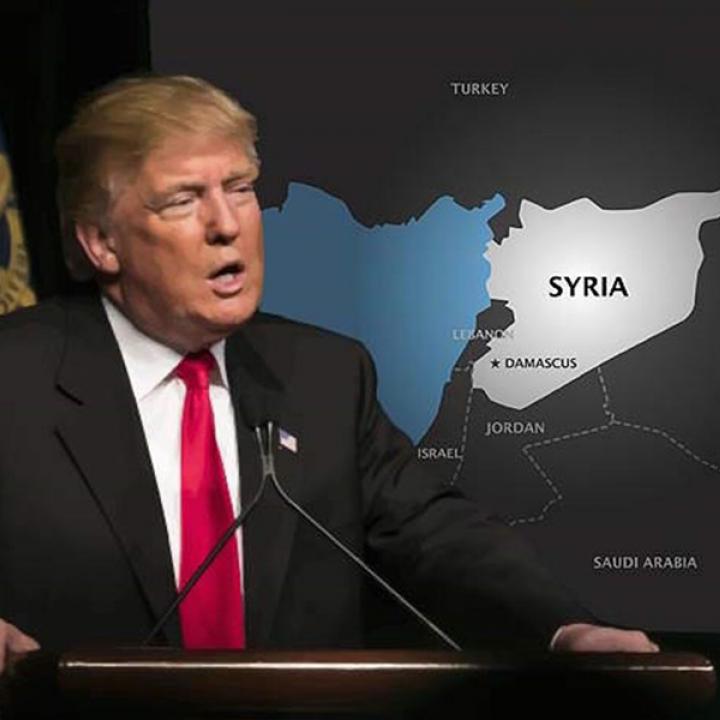
- Policy Analysis
- Articles & Op-Eds
Trump Can’t Sit This One Out
Also published in Washington Post

Despite his latest tweets about staying out of the Syria crisis, Trump has a history of working with Turkey on these issues and has several carrots to offer HTS as well.
As Bashar al-Assad’s dictatorship was collapsing, President-elect Donald Trump was tweeting that the United States has no dog in the Syrian fight. This is not true. Revolutionary Syria stands at a crossroads: If the country disintegrates, the chaos could overwhelm its neighbors, America’s European allies and even the United States. Trump also has an opportunity to undermine Iran and clip Russia’s wings—by ensuring the countries’ complete departure from Syria.
Both these goals run through Hayat Tahrir al-Sham, the revolutionary group that helped seize Damascus as Assad fled. Rooted in al-Qaeda in Iraq, HTS has not been a force for democracy and inclusion. However, over the past decade, it has peacefully run local government in Syria’s Idlib province—collecting trash and training traffic cops.
Proximity to Turkey has played a role in moderating HTS. A conservative and populist figure, President Recep Tayyip Erdogan is neither in bed with the Islamic State nor an al-Qaeda fan. Yet Syria’s future depends on what happens next. If HTS returns to its violent, sectarian roots, more conflict lies ahead.
Working with Turkey should not be hard for Trump. He and Erdogan cooperated well during Trump’s first term, especially on Syria.
And Trump has several carrots to offer HTS. First, the group wants to see itself delisted as a designated terrorist entity. HTS craves legitimacy and will want any government it participates in to be duly recognized by Washington. And it knows that the money for Syria’s reconstruction will come mainly from funds organized by the United States.
In exchange, HTS will have to share power with Syria’s other opposition groups and demonstrate inclusivity. It will also need to commit to keeping religion out of public education and the courts. Given Syria’s diversity, sharia law cannot be imposed. And HTS would have to promise to prevent Islamist militants from using Syrian territory to plan external attacks.
Most Syrians, especially HTS, despise Russia and Iran for supporting Assad’s brutal dictatorship. A stable, democratic, inclusive government would help ensure that neither power will have a strong foothold in the country ever again.
Soner Cagaptay is the Beyer Family Senior Fellow at The Washington Institute and director of its Turkish Research Program. This article was originally published as part of a Washington Post compilation.



